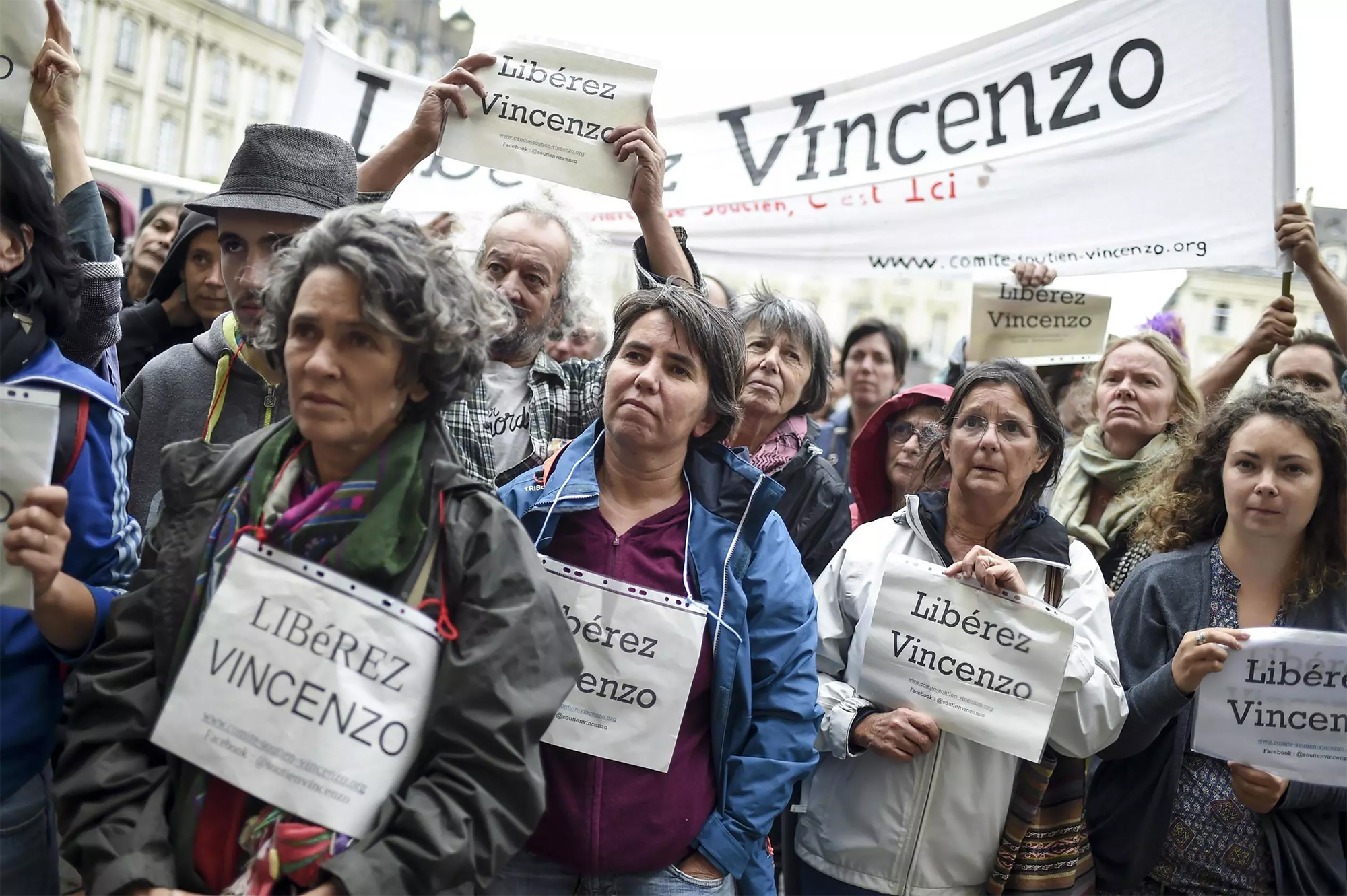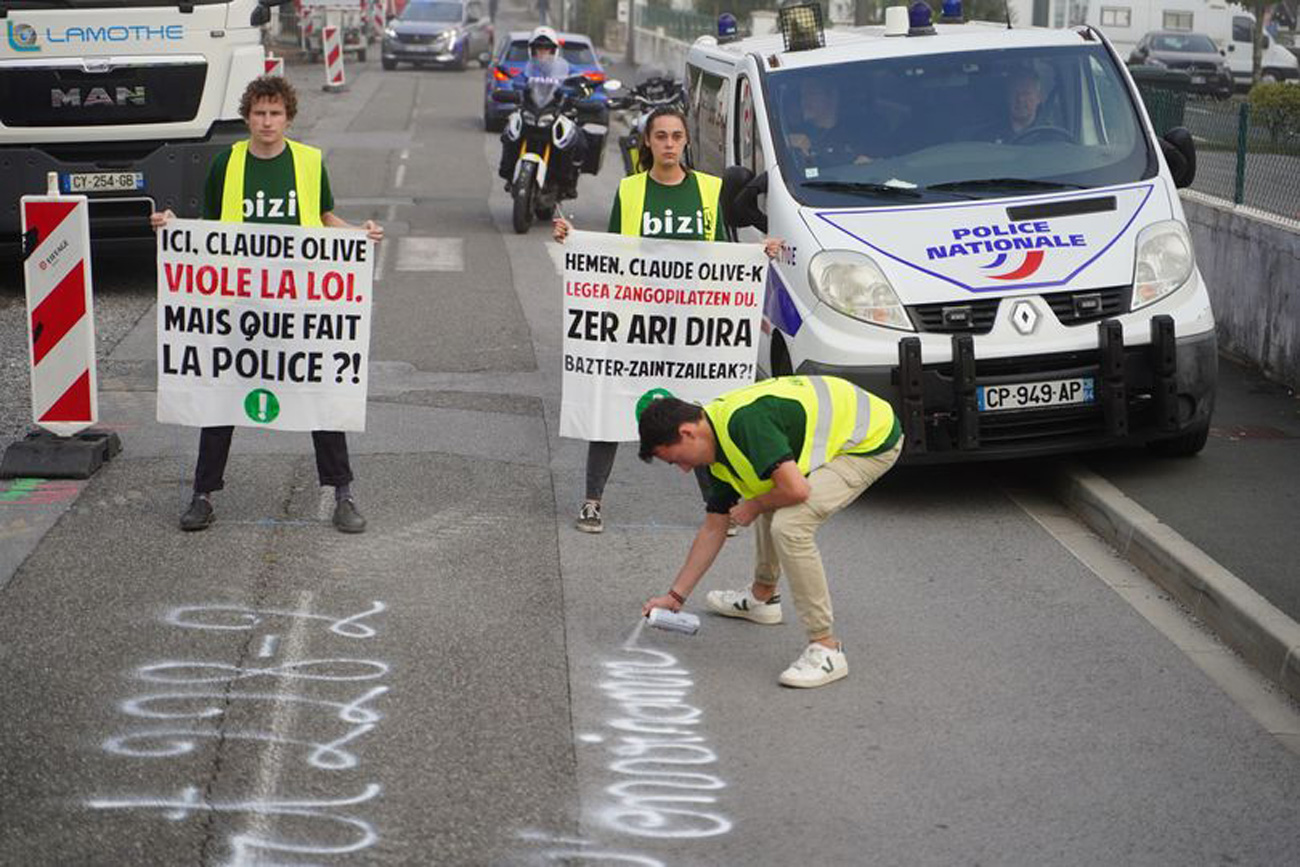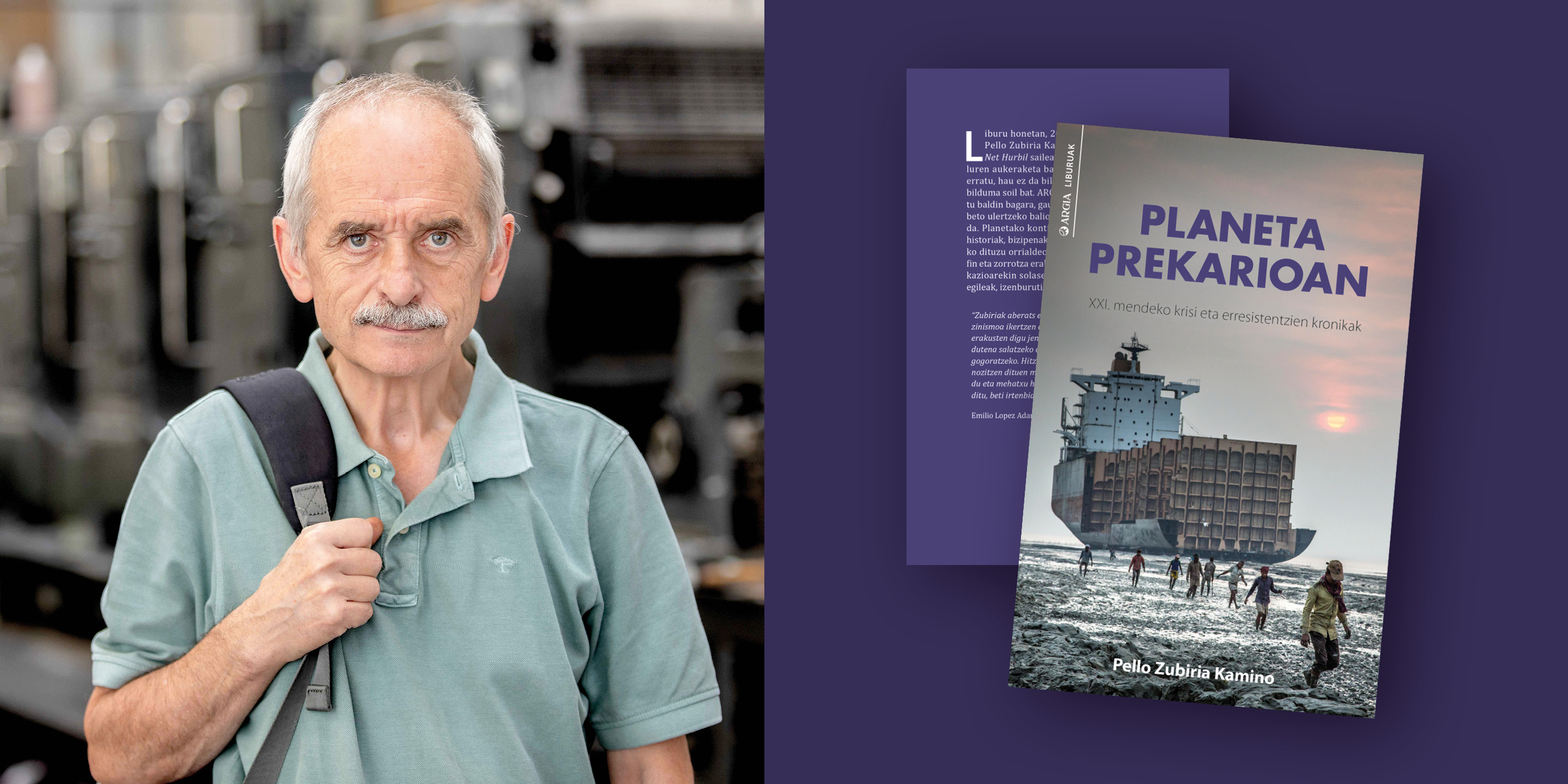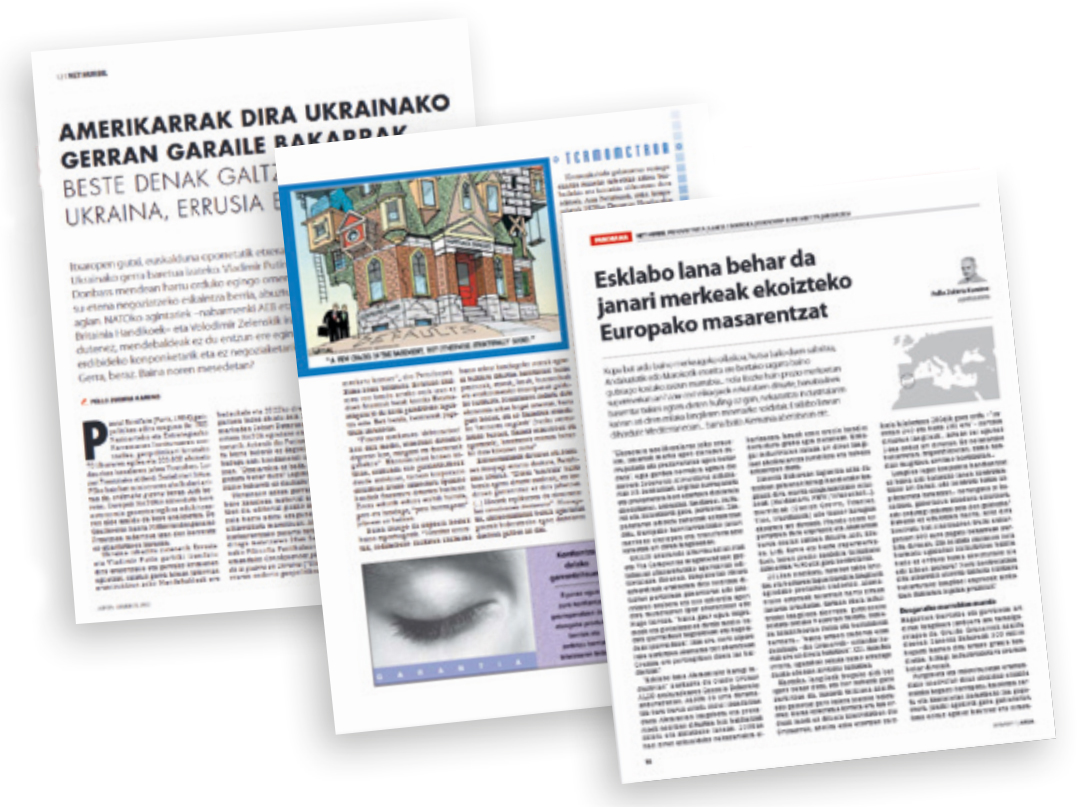Criminalising activists is the new justice game in Europe, ask Vincenzo Vecchi
- If no one knows who Vincenzo Vecchi is yet, let him start learning his name. It is not just an activist during the anti-globalisation demonstrations of the beginning of the century. Protected in Brittany for twelve years, Italian justice wants to be extradited to serve the sentence imposed by a law of the time of Mussolini. Vecchi is also a person who has cruelly pursued to criminalise all protest, dissent and experience.

We are drafting these lines pending the judgment of the Lyon appellate court. On 24 March he decided whether Vincenzo Vecchi was extradited to Italy to face a harsh multi-annual sentence in his country of origin. Your crime? Participating in an anti-globalization demonstration for over two decades. Do not be surprised to the reader, if you return a law from Mussolini's time to the current reality, what do you want to condemn?
But “in the Vecchi case” not only is the future of a person at stake, but it can also impose dangerous jurisprudence in the European Union. The double criminality that has prevailed so far would put its head on: it would not be necessary for the alleged crime to appear in the penal code of both countries, although the judge who has requested the surrender of the fugitive applies the most fascist and retrograde law. The citizen committee in favor of Vince usually explains the gravity of the issue with a concrete example: what would happen if Polish justice issued a Euroorder against a person who has helped a woman abort? And in the case of the Catalan politicians who claim Spanish justice, what to say?

The trial against Vecchi was held a month ago in Lyon, after a long trial, and Appellate Attorney General David Aumonier was “firm and secure” to deliver the activist. In any event, however, the only thing that is certain is that both the defence and the accusation will resort to and will be the source of ensimas in a major civil rights struggle. The newspaper Rue89 highlights Vecchi’s speech to the jury in Lyon: “His will be a moral judgment.”
Recalling that July 2001?
Many readers will bear in mind the counter-peak organised in Genoa at the G8 summit in July 2001. Thousands of protesters came to this city, not least from Euskal Herria. The Italian Government reacted with brutal repression against the alterglobalist movement which sprouted at that time. Environmental activist Carlo Giuliani paid with his life this havoc. And many others suffered in their flesh the barbarity of the police, who lost all their teeth in the massacre of the media center organized at the Diaz school. 600 wounded and 325 arrested. Amnesty International reported that it was “the largest violation of human and democratic rights since World War II in a Western country.”
The European Court of Human Rights condemned Italy for the events in Genoa in 2001, but the police never went to jail.
The European Court of Human Rights condemned Italy in 2015 for these facts, but the police never went to jail because they had been amnestied. On the contrary, Italian justice has acted very stubbornly against a number of those involved in this demonstration. Vincenzo Vecchi is the last of them.
Following his passage through the anti-globalisation groups in Lombardy since the 1990s, Vecchi, like many others, protested in Genoa in 2001. For this reason, and because of his anti-fascist march in 2006, he was sentenced to a 13-year prison, based on simple photographs in which he appeared.
For this purpose, the judges used a fossilized law in force since the time of the dictator Benito Mussolini, created in 1930 by the fascist minister Alfredo Rocco. “Our criminal code is a political code,” Italian leader Noam Chomsky and other personalities said in his letter of support to Vecchi. According to this law, it is enough to be in a scenario where devastation and saccheggio (“destroying and burglary”) have occurred, so that a person receives harsh penalties for “moral protection” of this fact.

So, in 2011, Vecchi left jail. But the Italian Government has been following his trail patiently for years until he finds him: when in 2019 he was arrested in the town of Rochefort (Breton) in Rochefort (Argoed), Breton, when he was working in Sant-Grave.
Crossroads between courts
During all these years Vecchi has not been hidden: he has carried out community work in the village, has been painting houses of neighbours, has participated in social activities... His arrest did not go unnoticed, and it is no wonder that in this February phrase at the gates of the Palais de Justice in Lyon there are a lot of people from Brittany, making an appeal from Vincenzo. In addition, Milandi was accompanied by a bus organized by the legal support team to the representatives of the G8 summit in Genoa.
Notwithstanding the judgment, the defence and the indictment will appeal; it will be the umpteenth major civil rights struggle
The complete chronology of the adverse process can be found on the website of the Vecchi Protection Committee. Since 2019 the case has passed through the appellate courts of Rennes, Angers and Lyon, and the prosecutor has regularly appealed to the Paris Court of Cassation to reject the Euroorder.
In 2021, the Court of Cassation brought the matter to the Court of Justice of the European Union, which opened the door to a blurry and surprising interpretation that crimes do not need to be identical in the rights of both countries for a person to be surrendered. A scandal. “Is it reasonable that 20 years later someone will return to their country to serve the sentence imposed by a Mussolini law, when it is integrated in France (sic) with all guarantees?” asks Vecchi’s lawyer, Maxime Tessier, in the resistance magazine La Ré3ª y la Peste.
.jpg)
In Genova 2001, a storia of the present (“Genova 2001, a current history”), the work of Emilio Quadrell, expanded by the Italian Repression Observatory, clearly shows the objectives of the G8’s counter-renal repression: “Everything that was critical of the globalization of capitalism and its unique thinking had to be abolished.” And to justify it, a whole story was created to fight the protesters. In this context lies the subsequent judicial persecution against Vecchi from the Italian Repression Observatory. And since then, how many times have the elites of the world used the same strategy to criminalize and crush any protest movement?
Signalling, persecution, elimination
Anyone wishing to answer this question can recently read the report Criminalization of the right to protest, actors and instruments (pdf) (“Criminalization of the right to protest: criminalization of the right to protest: patterns, actors and instruments”), published jointly by OMAL, Observatory of Latin American Multinationals and Peace and Dignity. The authors are Juan Hernández Zubizarreta, Erika González and Pedro Ramiro and have analyzed cases both in Europe and in South America at the request of the Ezkerra group of the European Parliament.
A full account
was created to justify the repression in the countercurrent of the G8 in Genoa. In this context, it places judicial persecution against Vecchi at the Italian Repression Observatory
They explain that the criminalization of social protest “is a phenomenon that is spreading with the decline of the belle epoque of neoliberalism”, and that follows a series of patterns: to point out people and organizations that question corporate power – convincing public opinion that they are against the general interest of citizens – to suppress and persecute; and if the latter does not work, “physically eliminate” directly.
The main actor of this criminalization process is the State, according to its authors: stigmatization, judicialization, espionage, threats, reform of penal codes, the monopoly of violence… are the usual instruments, but think tanks and para-police groups of companies also collaborate.
The report illustrates examples such as the media campaign launched in 2022 against the mobilizations of the indigenous peoples of Ecuador, which linked the movement with drug trafficking, as is being done with the current Peruvian protests. And closer to here, in the Spanish State, the members of the Mortgage Platform Impaired by the Mordaza Law, which has not yet been repealed, refer to the fines that in Catalonia have imposed in two years hundreds of fines, until accumulating 200,000 euros of debt, “in a part of the already very precarious population”.

All this is not new, the reader thinks. In Euskal Herria we have a thousand other examples, both old and recent: insumids, TAV activists, political dissidents, students, detained in the countercurrent of the G7 in Biarritz... all of them have been, more or less, toys of that macabre strategy. But what is most worrying is the trend: “Everything points to the fact that in the near future the process of criminalisation will be expanding – they say in the report – because the worsening economic, ecological and energy crisis will increase social inequalities and exacerbate conflicts. Faced with this, the political and economic elites want to put a barrier to blocking structural changes.”
The Vecchi question is therefore also a matter for everyone, because it is a barrier that will lock us all together.
Metamorfosia ekologiko eta soziala bultzatzen duten alternatiben erakusleiho bat Baionan. Euskal Herria "burujabe, solidario eta iraunkorraren" aldeko ekimena ospatu du Bizi mugimendu ekologistak asteburuan, Lapurdiko hiriburuan. Parte hartze kopuruak antolatzaileek... [+]
2013ko Alternatiba Egunetik hamar urtera, 10.000 pertsona bildu nahi ditu Bizi mugimendu ekologistak bi egunez Baionan. ‘Euskal Herria Burujabe’ topaketak antolatu ditu urriaren 7tik 8ra, lurralde iraunkor, solidario eta burujabe baten aldarrikatzeko.
Independent of Bizi. Many of the ideas of the project Recovering our living conditions are deeply criticized, but we are willing to interview with militants of the Bizi movement.
According to Elhuyar's translation, French means independent, sovereign, and sovereignty means... [+]
Bizi mugimenduak segitzen du klima aldaketaren deiadarra jotzen eta bi ekimen abiatu ditu aste honetan. Alde batetik, hautetsiendako formakuntza proposatu du, azaro arte luzatuko dena eta, eta bestaldetik 'Txirrindiraultza' prestatua du iganderako Donibane Lohitzunen.
Klima aldaketaren eraginaz eta erabakiak hartzen dituztenak presionatzeko mobilizazio ereduez, etxebizitzaren krisiaz, justizia sozialaz eta etorkizun jasangarri baterako alternatibez ikasteko eta eztabaidatzeko kanpalekua antolatu dute Alda eta Bizi! kolektiboek.
Larrialdi klimatikoaren aurkako borrokarentzat mehatxu diren Frantziako Presidentetzarako hautagaiak salatzen hasi da Bizi, haien hauteskundeetako afixetan ohartarazpenak jarriz. Larrialdi klimatikoa serioski hartzen ez duten politikarien arriskua azaleratu eta neurriak hartzeko... [+]























